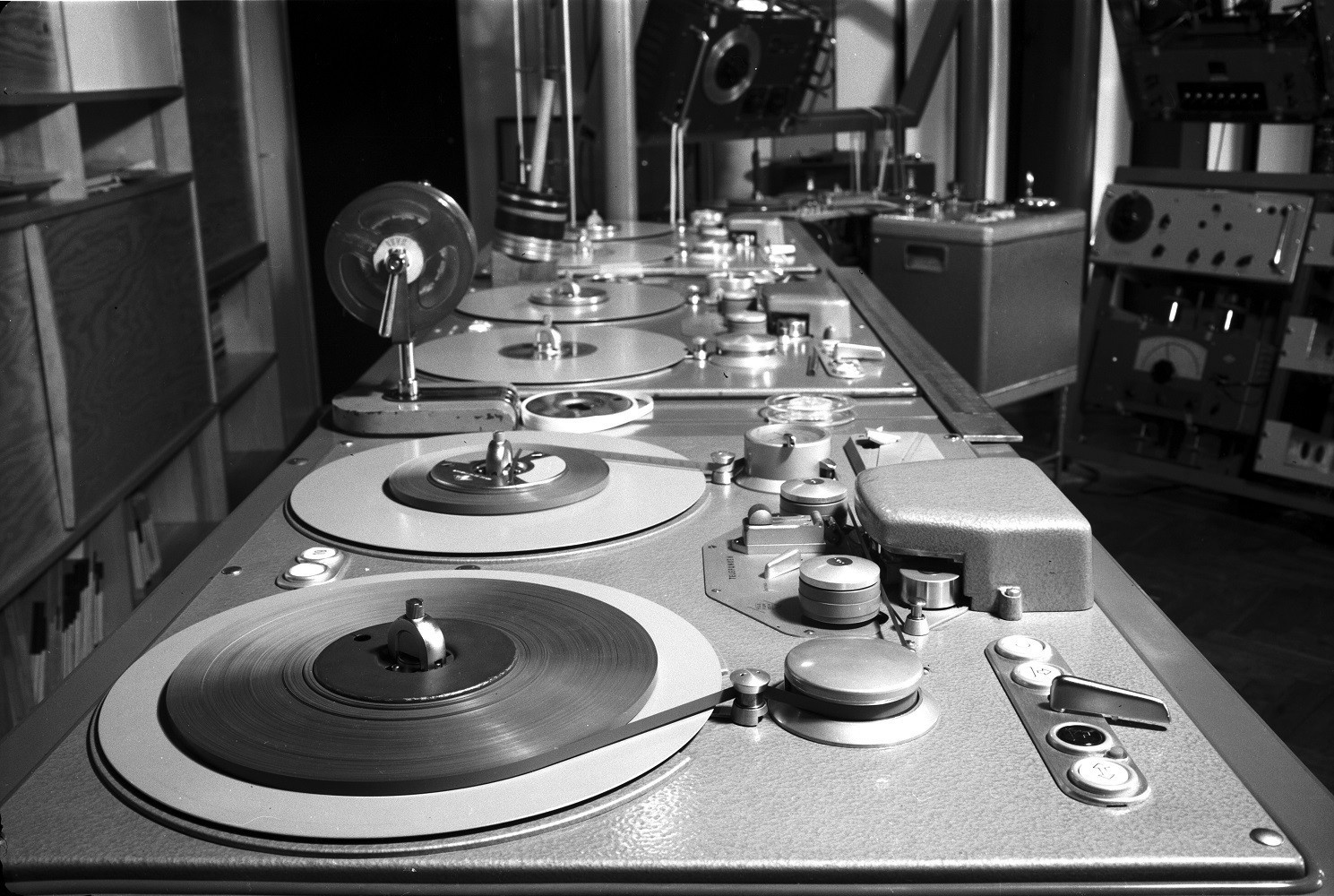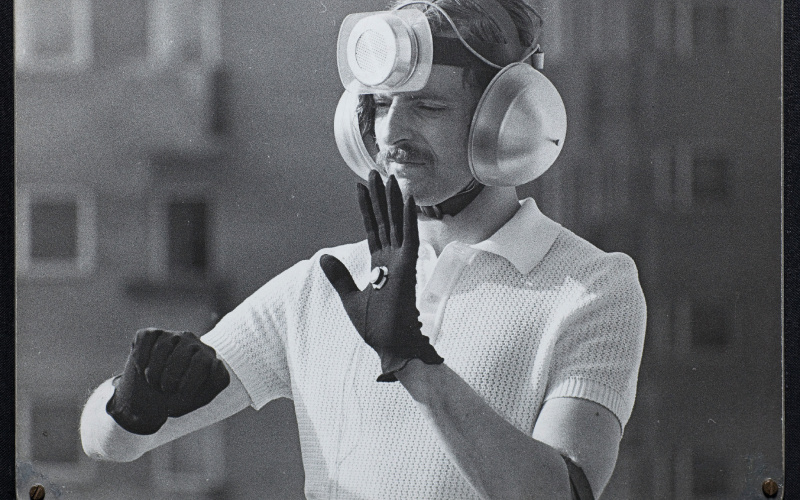- Event
- Concert
Concert evening
as part of the exhibition »Through the Soundproof Curtain. The Polish Radio Experimental Studio«
Sat, July 14, 2018 6:00 pm CEST
- Location
- Media Theater
The evening after the opening of the exhibition »Through the soundproof curtain. The Polish Radio Experimental Studio« (PRES) organizes a performance of Krzysztof Knittel, one of the most profound composers of the Experimental Studio. Furthermore, composer and singer Maja Ratkje and composer Valerio Tricoli awaken the spirits of two of his colleagues invoked from the electroacoustic world, Eugeniusz Rudnik and Bohdan Mazurek.
The activity of the »Polish Radio Experimental Studio was brought to an end in 2003. However, its »afterlife« started as early as in 1998 when Norwegian ambient masters – »Biosphere« (Geir Jennsen) and »Deathprod« (Helge Sten) – paid tribute to the pioneer of the Scandinavian electronic music on their »Nordheim Transformed« album. Soon following in their footsteps were artists from Poland and Norway, as well as Germany, France, and the USA who found the sound and aesthetics of the works by Eugeniusz Rudnik and Bohdan Mazurek much closer to their hearts than the characteristics of the canon of American, German, or French experimental music.
Maja Ratkje, 2013
»When asked to compose music inspired by the classic works by Eugeniusz Rudnik, I was electrified by the unconventional use of voice and field recordings in his compositions.«
Maja Ratkje is one of the leading contemporary composers and Norwegian vocalists. While improvising at concerts, she uses a constantly evolving set of specific samples, which has a lot in common with Eugeniusz Rudnik’s sound universe.
The contemporary relevance of Bohdan Mazurek’s works has become the source of inspiration for Italian composer Valerio Tricoli. While Maja Ratkje has used solely contemporary electronic tools (along with her voice) in her work, the Italian artist has employed, with a dazzling display of virtuosity, an archaic Revox-brand reel-to-reel tape recorder. This close relative of the »instruments« chosen by Rudnik and Mazurek years ago has now been used in real-time variations of the recordings of the latter one.
As much as Rudnik and Mazurek remained faithful to the analogue domain, the younger artists of the Experimental Studio were eager to follow subsequent trends in employing tools and aesthetics arising from the development of digital technology. Krzysztof Knittel shows a strong preference for a wide variety of performative actions, ranging from an electroacoustic improvisation to an audiovisual happening. His latest work – »free for(m) macwin« – is essentially a unique digital instrument, which evokes quite intimate associations in the context of the curating institution.

